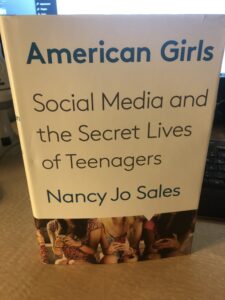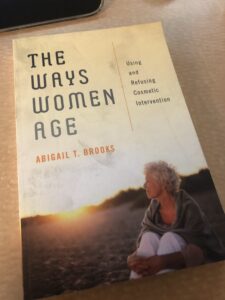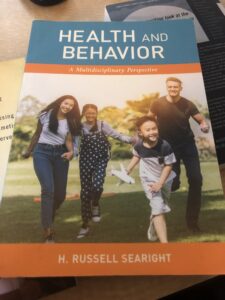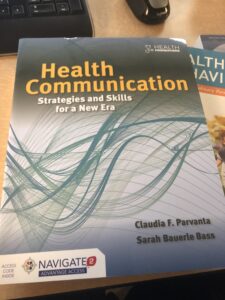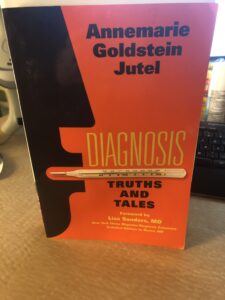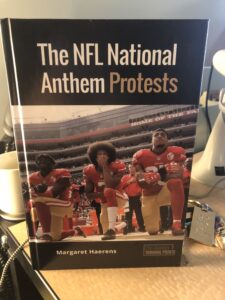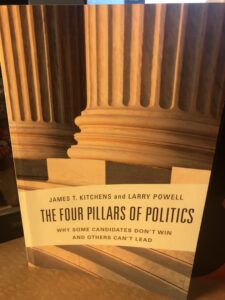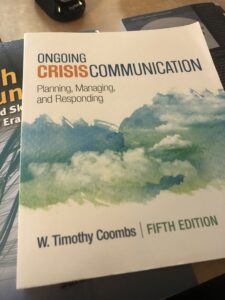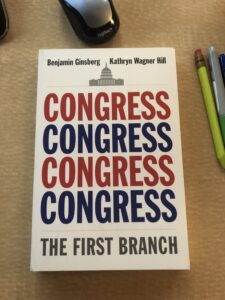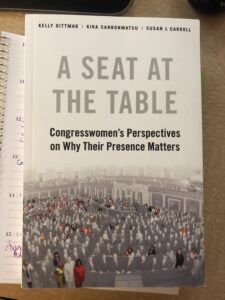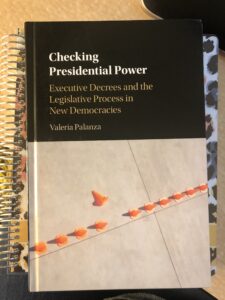Recently added books in the last couple of days, ranging from politics to communication, health to agriculture. Come check them out!
Monthly Archives: February 2020
A Dichotomous Era
Ahh, the Victorians, such a dichotomous group of people. They wanted to raise money for the poor but only if they didn’t have to see them; they would have spouses and children while walking down the block to have a dalliance or two (sometimes with someone of the same gender *gasp*). Many Victorians even had double lives – The Picture of Dorian Gray exemplifies this quite well. They wanted to have their cake and eat it too, but only if it was behind closed doors.
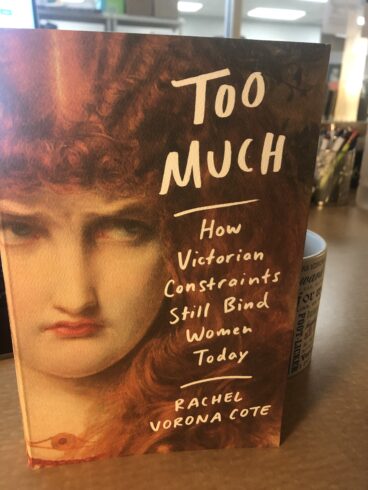 Yet, many double standards for women still exist because of this group of people. A weeping woman is a monster. So too is a fat woman, a horny woman, a woman shrieking with laughter. Women who are one or more of these things have heard, or perhaps simply intuited, that we are repugnantly excessive, that we have taken illicit liberties to live with abandon. It is the age-old problem women face, they can either be the angel or the monster, Mary or Eve, the madwoman in the attic or Jane Eyre.
Yet, many double standards for women still exist because of this group of people. A weeping woman is a monster. So too is a fat woman, a horny woman, a woman shrieking with laughter. Women who are one or more of these things have heard, or perhaps simply intuited, that we are repugnantly excessive, that we have taken illicit liberties to live with abandon. It is the age-old problem women face, they can either be the angel or the monster, Mary or Eve, the madwoman in the attic or Jane Eyre.
Too Much: How Victorian Constraints Still Bind Women Today is a critical cry against white, heteronormative propriety and a culture that prizes only masculine profusion. It encourages women to reconsider the beauty of their excess—emotional, physical, and spiritual—in order to wrest power from these man-made boundaries. An erstwhile Victorian scholar, Rachel Vorona Cote makes parallels between the era’s fixation on women’s “hysterical” behavior and our modern policing of the same; in the space of her writing, you’re as likely to encounter Jane Eyre and Lizzy Bennett as you are Britney Spears and Lana Del Rey. She braids cultural criticism, theory, and storytelling together in her exploration of how culture grinds away our bodies, souls, and sexualities, forcing us into smaller lives than we desire (inside flap summary).
“A fascinating exploration of how literature and pop culture have constructed (and exploded) our expectations of modern womanhood, this book is as gloriously defiant as the women it profiles.” Review by Robin Wasserman
Growing but Declining?
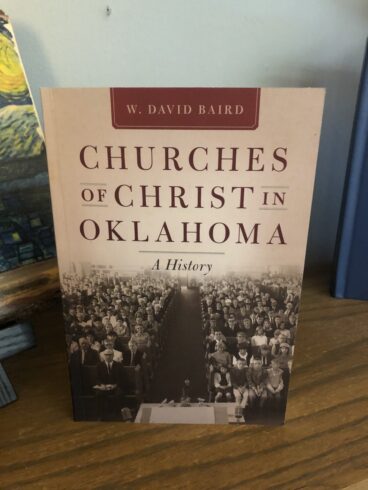 In the 1950s and 1960s, Churches of Christ were the fastest-growing religious organization in the United States. The churches flourished especially in southern and western states, including Oklahoma. In this compelling history, historian W. David Baird examines the key characteristics, individuals, and debates that have shaped the Churches of Christ in Oklahoma from the early nineteenth century to the beginning of the twenty-first century.
In the 1950s and 1960s, Churches of Christ were the fastest-growing religious organization in the United States. The churches flourished especially in southern and western states, including Oklahoma. In this compelling history, historian W. David Baird examines the key characteristics, individuals, and debates that have shaped the Churches of Christ in Oklahoma from the early nineteenth century to the beginning of the twenty-first century.
Beginning with an account of the Stone-Campbell movement, which emerged along the American frontier in the early 1800s, and continuing with how the members of this movement first came to Oklahoma, Baird highlights the role of two prominent missionaries during this period. He then describes the second generation of missionaries who came along during the era of the Twin Territories, prior to statehood.
In 1906, as a result of disagreements regarding faith and practice, followers of the Stone-Campbell Movement divided into two organizations: Churches of Christ and Disciples of Christ. Baird then focuses solely on Churches of Christ in Oklahoma, all the while keeping a broader national context in view. Drawing on extensive research, Baird delves into theological and political debates and explores the role of the Churches of Christ during the two world wars.
As Churches of Christ grew in number and size throughout the country during the mid-twentieth century, controversy loomed. Oklahoma’s “Churches of Christ argued over everything from Sunday schools and the support of orphan’s homes to worship elements, gender roles in the church, and biblical interpretation” (xii). And nobody could agree on why church membership began to decline in the 1970s, despite exciting new community outreach efforts.
This history by an accomplished scholar provides a solid background and new insight into the question of whether Churches of Christ locally and nationally will be able to reverse course and rebuild their membership in the twenty-first century.
Teaching Music
While we would all love to be the next Beyonce, the likelihood of that happening is slim. More often than not most of us will sing in the shower or the car ride to and from work or school, instead of in front of thousands of screaming fans.
However, that doesn’t mean music is not important to learn from a young age and continue to use throughout a person’s adult life. Research shows that music can help students developmentally and in other subjects, along with help in memory (all the song lyrics that most people have memorized).
Teaching music brings its own set of joys. Here are books that provide the means to teach music to students in a variety of formats and instruments.
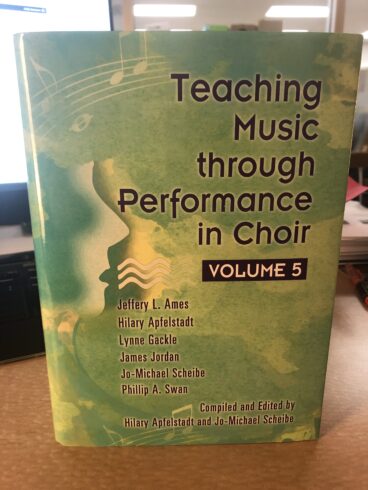 Part of a series that remains one of the most important resources for choir directors looking for quality repertoire that has been vetted by a distinguished panel of educators. Containing Teacher Resource Guides for approximately 100 works, organized by difficulty. Selected by a team of leading choir directors, the repertoire in Volume 5 balances SATB literature with works for treble and tenor/bass choirs.
Part of a series that remains one of the most important resources for choir directors looking for quality repertoire that has been vetted by a distinguished panel of educators. Containing Teacher Resource Guides for approximately 100 works, organized by difficulty. Selected by a team of leading choir directors, the repertoire in Volume 5 balances SATB literature with works for treble and tenor/bass choirs.
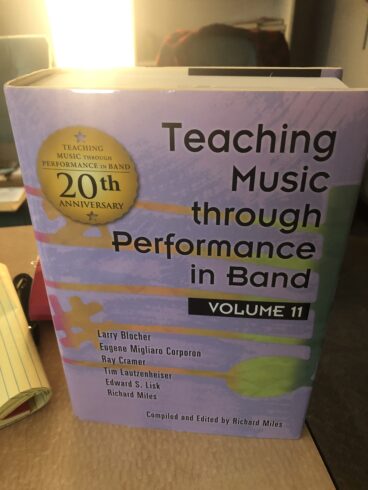
This 1100 page volume builds on a twenty-year tradition of providing essential and innovative information for wind band conductors. It includes Teacher Resource Guides for 100 significant works published for Grades 2-6. Each Guide includes information about the composer, the work, historical perspectives, technical considerations, and more. A significant and indispensable resource for the wind band profession.
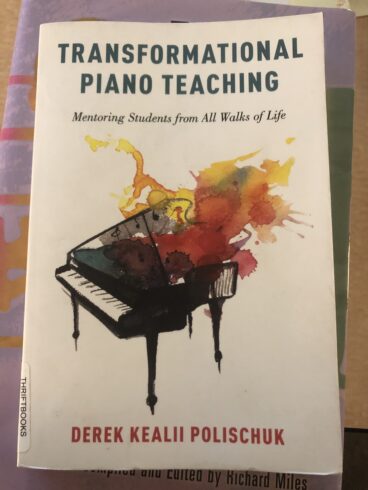
Empowering piano teachers to build their students’ artistic and empathic potential, and their lifelong personal motivational framework. Exploring the influences of family, peers, interpersonal relationships, and social media, Derek Polischuk discusses howe to meet the needs of today’s students from a diverse range of circumstances.

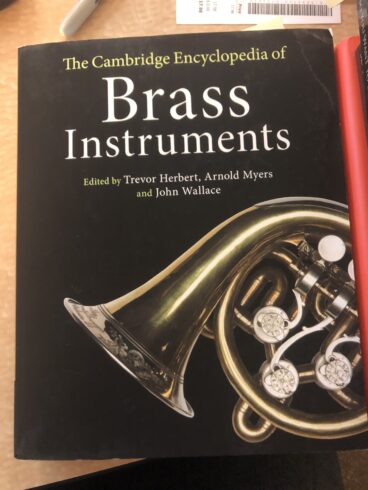
Whether you are a pre-service, newly-hired, or veteran elementary general music teacher, Engaging Musical Practices: A Sourcebook on Elementary General Music offers a fresh perspective on topics that cut across all interactions with K-5th grade music learners. Chapter authors share their expertise and provide strategies, ideas, and resources to immediately apply their topics; guiding focus on inclusive, social, active, and musically-engaging elementary general music practices.
An honorable mention:
Thirty-two experts from fifteen countries join three of the world’s leading authorities on the design, manufacture, performance, and history of brass musical instruments in this first encyclopedia on the subject.
Empty Pews at Empty Tables
As someone who left the church when she was only in 6th grade, and in college attended services sparingly, I have probably said at least every excuse/reason in the book for not going to church as I was growing up.
According to Gallup and Pew Research, this is not an anomaly. There is a sharp decline in church attendance in the past decade. From the late 1930s to the last 1990s, church attendance was pretty consistent. It typically hovered around the high 60s and low 70s percentage (except around the mid to late 1940s when church attendance was around 76%, I’m guessing World War II had something to do with that). Yet, around the early 2000s is when church attendance has taken a dramatic shift into the low 60s percentage and in 2018 was at only 50% attendance (Jones). A post 9/11 world, the internet coming into our homes, a new generation growing and learning, culture shifts have changed how many people think about church and attending church.
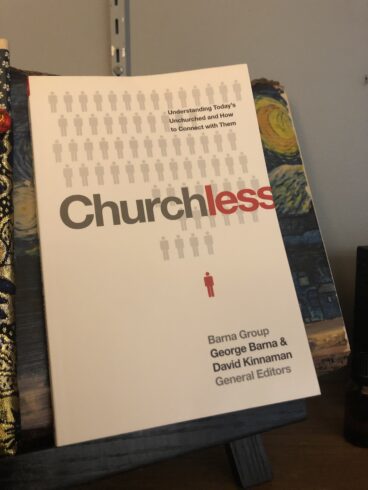 In Churchless, David Kinnaman and George Barna shine a spotlight on today’s culture and reveal the surprising reasons why church avoidance is on the rise—and a hopeful analysis of what to do about it.
In Churchless, David Kinnaman and George Barna shine a spotlight on today’s culture and reveal the surprising reasons why church avoidance is on the rise—and a hopeful analysis of what to do about it.
Kinnaman and Barna interviewed thousands of churchless men and women to:
- Identify who the churchless are and why their number is growing
- Expose the startling truth that many unchurched people reveal they are looking for a genuine, powerful encounter with God—but just don’t find it in a church
- Show what the churchless believe about life’s spiritual questions, including the nature of God, evil, and the afterlife
- Offer insight on how to effectively reach the churchless friends, family, and neighbors in your own life.
While Kinnaman and Barna look at the research behind the lack of church membership and attendance, Katie Hays became a planter-pastor of Galileo Church. 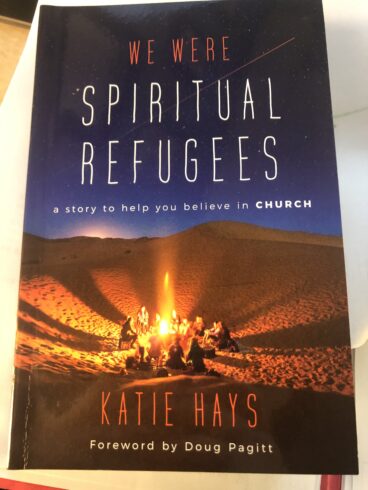 In We Were Spiritual Refugees, she shares the story of departing the traditional church for the frontier of the spiritual-but-not-religious and building community with Jesus-loving (or at least Jesus-curious) outsiders. Galileo church “seeks and shelters spiritual refugees” in the suburbs of Forth Worth, TX. Told in funny, poignant, and short vignettes, Galileo’s story is not one of how to be cool for Christ. Like its founder, Galileo is deeply uncool and deeply devout, and always straining ahead to see what God will do next. Hays says curiosity is her greatest virtue, and she recounts learning how to share the good news with people who are half her age and intensely skeptical.
In We Were Spiritual Refugees, she shares the story of departing the traditional church for the frontier of the spiritual-but-not-religious and building community with Jesus-loving (or at least Jesus-curious) outsiders. Galileo church “seeks and shelters spiritual refugees” in the suburbs of Forth Worth, TX. Told in funny, poignant, and short vignettes, Galileo’s story is not one of how to be cool for Christ. Like its founder, Galileo is deeply uncool and deeply devout, and always straining ahead to see what God will do next. Hays says curiosity is her greatest virtue, and she recounts learning how to share the good news with people who are half her age and intensely skeptical.
Jones, J.M. (2019). U.S. church membership down sharply in past two decades. Retried from https://news.gallup.com/poll/248837/church-membership-down-sharply-past-two-decades.aspx
Read it Before You See it!
Jane Austen’s books are so timeless, romantic, and funny. While most only look at her as a romance writer, her writings are truly subversive for her time and even today. Emma published in 1815 was Austen’s last novel to be completed and published during her life. Sidenote: Persuasion was the last novel Austen wrote but was published posthumously.
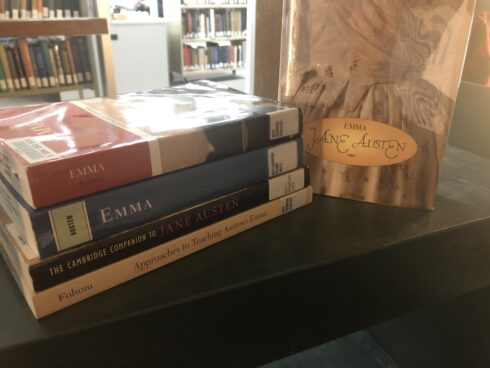 Emma centers around Emma Woodhouse a young girl who tries her hand at matchmaking and ends up causing many problems along the way. Filled with youthful hubris and the perils of misconstrued romance, it’s an enjoyable novel that explores the concerns and difficulties of genteel women living in Georgian-Regency England.
Emma centers around Emma Woodhouse a young girl who tries her hand at matchmaking and ends up causing many problems along the way. Filled with youthful hubris and the perils of misconstrued romance, it’s an enjoyable novel that explores the concerns and difficulties of genteel women living in Georgian-Regency England.
Since its publication, there have been many films, TV programs, stage plays and inspiration for many novels.
While I love the 1996 Emma, starring Gwyneth Paltrow as Emma Woodhouse, I’m particularly excited about this upcoming movie premiering this Friday. The trailers show that they are bringing in more of the comedy aspects of this novel than in previous iterations (granted, I have not seen all of them).
As Emma is my favorite Jane Austen novel, I do hope they do it justice.
The trailer for it is below, but also be sure to check out Emma by Jane Austen or a book about Jane Austen. We have plenty of them down in the stacks!
Won’t You be my Neighbor?
Politics in the United States is not insular, unaffected by other countries or regions. There is much that goes on in other countries that unbeknownst to us, will come to affect us the next day or even the next decade. Even if they don’t affect us, an understanding of other countries’ culture and politics can help our own country.
An array of books about other countries have just arrived, so come and take a look at them.
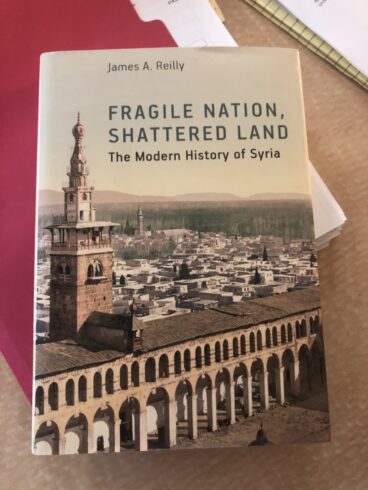
“A condensed history that delivers sparkling insight set off by a simple and elegant style. This book should be read by anyone wishing to understand the deeper social and cultural dimensions of Syria’s modern crisis.”
Review by Joshua Landis, University of Oklahoma
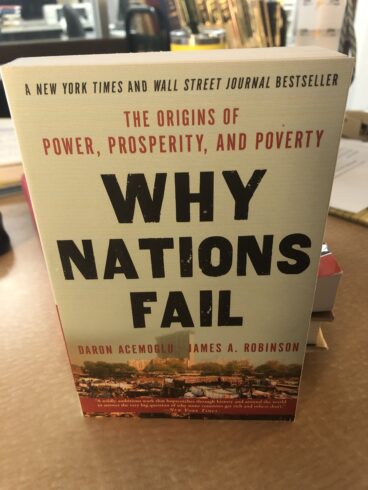
“Some time ago a little-known Scottish philosopher wrote a book on what makes nations succeed and what makes them fail. The Wealth of Nations is still being read today. With the same perspicacity and with the same broad historical perspective, Daron Acemoglu and James Robinson have retackled this same question for our own times.”
Review by George Akerlof, Nobel Laureate in economics, 2001
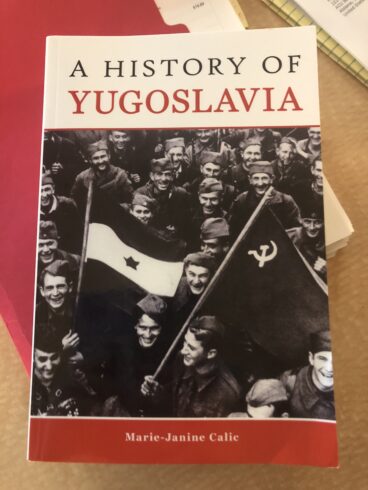
“By placing Yugoslavia into the wider context of Europe’s geopolitical, economic, and intellectual history of the long twentieth century, Calic superbly succeeds in explaining the vicissitudes of this wildly complex and fascinating country. . . arguably the best book I have read on the region of former Yugoslavia.”
Review by Ambassador (Ret.) Dr. Wolfgang Petritsch, Former EU Special Envoy for Kosovo, and High Representative for Bosnia and Herzegovina
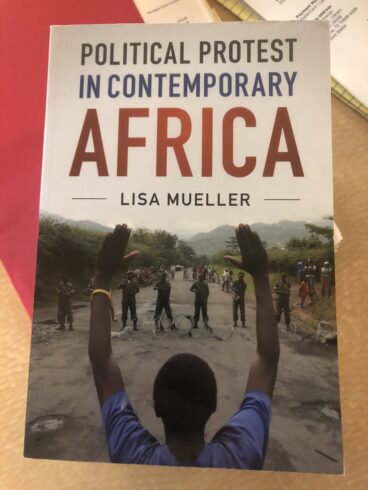
“Lisa Mueller’s excellent study of protest politics in Africa will no doubt prove to be the standard text on the topic.”
Review by Nicolas van de Walle, Cornell University
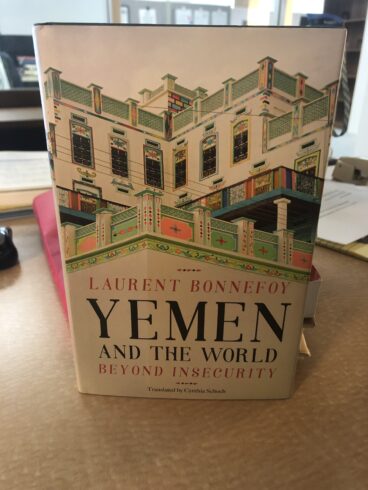
“A splendid documentation of Yemen’s synergies with the world, both in history and contemporary times. Bonnefoy has done a superb job of persuading us of Yemen’s vital position in the global community.”
Review by Marieke Brandt, Institute for Social Anthropology at the Austin Academy of Sciences, and author of Tribe and Politics in Yemen
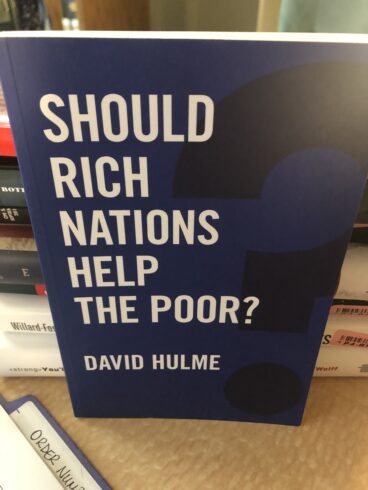
In the past decade, the developed world has spent almost US$2 trillion on foreign aid for poorer countries. Yet 1.2 billion people still live in extreme poverty and around 2.9 billion cannot meet their basic human needs.
But should rich nations continue to help the poor? In this short book, leading global poverty analyst David Hulme explains why helping the world’s neediest communities is both the right thing to do and the wise thing to do.
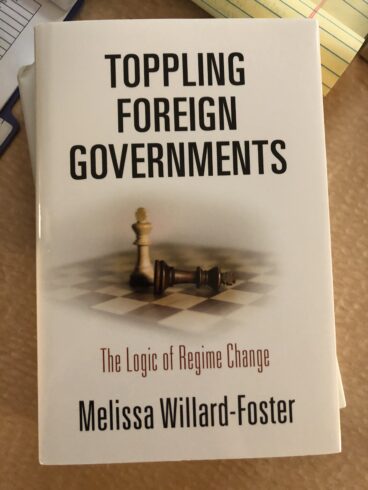
Melissa Willard-Foster explores the question of why stronger nations overthrow governments when they could attain their aims at the bargaining table. She analyzes 133 instances of regime change, ranging from covert operations to major military invasions, spanning over two hundred years.
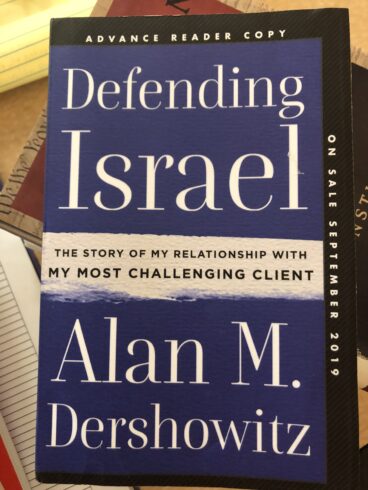
World-renowned lawyer Alan Dershowitz recounts stories from his many years of defending the state of Israel. He has spent years advocating for his “most challenging client” both publically and in private meetings. Brimming with personal insights and unreported details, Dershowitz offers a comprehensive history.
At a time when Jewish Americans as a whole are increasingly uncertain as to who supports Israel and who doesn’t, there is no better book to turn to for answers—and a pragmatic look toward the future.
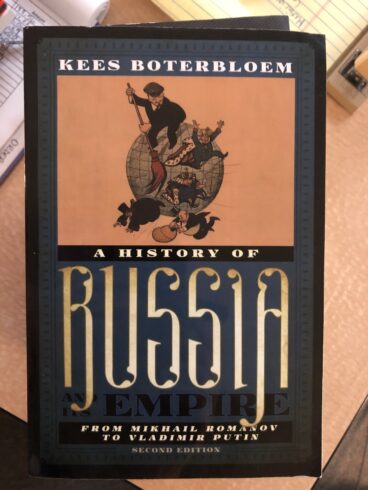
A concise text that provides an introduction to Russian and Soviet history from the crowning of Mikhail Romanov in 1613 through Putin’s current term. Boterbloem chronologically traces the political, military, economic, social, religious, and cultural developments that led Russia from an exotic backwater to superpower stature.
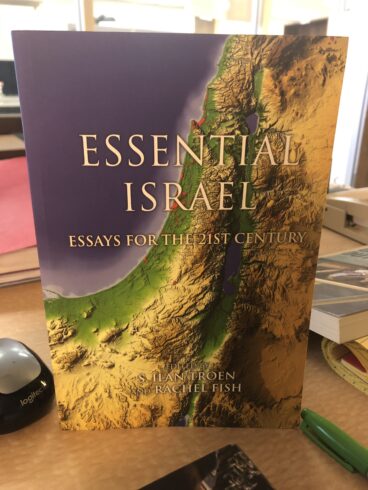
“In an era when vitriol has replaced reasoned discourse in discussions of Israel, this volume—thoughtful, balanced and comprehensive—is cause for celebration. The wide array of essays by leading academics and scholars provides both an accessible introduction to newcomers to the field of Israel studies as well as a thought-provoking collection even for seasoned participants in the conversation.”
Review by Daniel Gordis, Shalem College
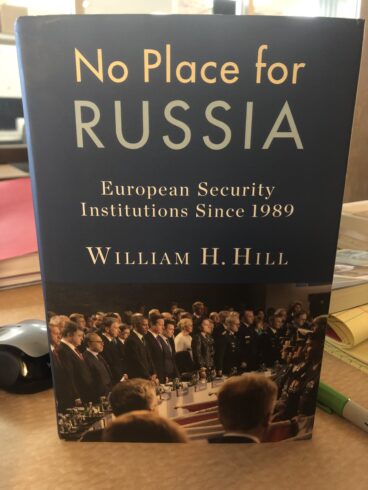
“Hill is the perfect person to tell the story of how the promise and hope that accompanied the end of the Cold War have replaced by war and renewed division in Europe three decades later. As a longtime student of Russia and as a former diplomat directly involved in addressing some of Europe’s most intractable security challenges, Hill brings a wealth of experience and insights into this clearly written, compelling, and timely narrative.”
Review by David Kramer, former U.S. assistant secretary of state for democracy, human rights, labor
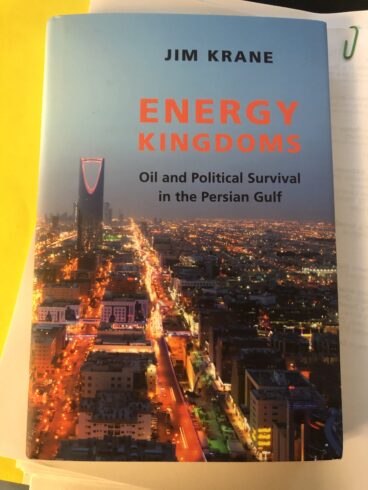
Jim Krane takes readers inside the monarchies of the Persian Gulf to consider their conundrum. He traces the history of the Gulf states’ energy use and politics, looking in particular at how energy subsidies have distorted demand.
Backed by rich fieldwork and deep knowledge of the region, Krane expertly lays out the hard choices that Gulf leaders face to keep their states viable.
“Here’s to Strong Women…
…”may we know them. May we be them. May we raise them” (Unknown).
I remember sitting in Sunday School class at a young girl listening to stories of Noah, Moses, David, and all the other great men in the Bible. While I am not harping or saying we shouldn’t focus on their contributions, I was a little miffed that I never really heard or studied the stories of the great women in the Bible, until later in college and after.
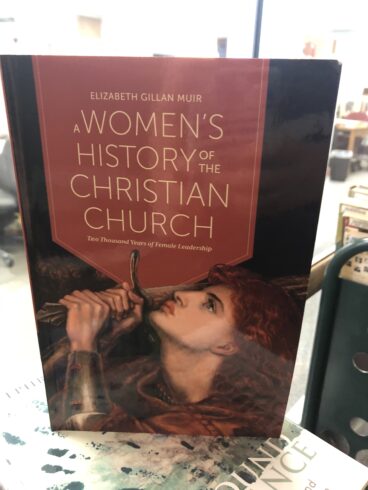 Well, now I have another book to add to my TBR pile (I cannot help myself, can I); Elizabeth Gillan Muir’s A Women’s History of the Christian Church: Two Thousand Years of Female Leadership. As she states in her Preface, this book grew out of an International Women’s Day event, as a panelist of female theological students were asked to discuss the women they admired in the history of the Christian Church. It soon became apparent that most of the audience was unaware of the rich history and contributions of females in the church over the past couple of thousand years. When Muir decided to write this book a friend told her “well, that will be a thin book” (xi). Yet, not only was there much to write about, but Muir was also not fully aware of the remarkable research that has been accomplished recently in this area.
Well, now I have another book to add to my TBR pile (I cannot help myself, can I); Elizabeth Gillan Muir’s A Women’s History of the Christian Church: Two Thousand Years of Female Leadership. As she states in her Preface, this book grew out of an International Women’s Day event, as a panelist of female theological students were asked to discuss the women they admired in the history of the Christian Church. It soon became apparent that most of the audience was unaware of the rich history and contributions of females in the church over the past couple of thousand years. When Muir decided to write this book a friend told her “well, that will be a thin book” (xi). Yet, not only was there much to write about, but Muir was also not fully aware of the remarkable research that has been accomplished recently in this area.
She dives into the earliest female apostle to the two Marys and the enlightened duties performed by cloistered women and the persecution of female “witches” to uncover the rich and tumultuous relationship between women and Christianity. So, “may you applaud the many strong, determined, and extraordinary religiously affiliated women described in [these pages], whatever your bias or your belief” (xiii).
All the Prayers, but is He Answering?
I’m generally a pretty doubtful person. I don’t mean to be per se, and it greatly annoys my father when I argue with him about how we don’t know if werewolves or vampires are real because isn’t the lack of evidence just as good as evidence. He’s typically left sputtering that this isn’t the case, and I’m left laughing to myself because most of the time I’m pulling his chain.
I like to believe that these creatures exist (don’t ask me why), just as I like to believe that one day I’ll get my letter from Hogwarts or find a whole world in the back of my closet or go on an adventure with the Doctor in the TARDIS. Logically, I know these things do not exist, but strangely, I find more hope in these stories of fantasy worlds with people who are flawed but bring hope than I do in the Bible.
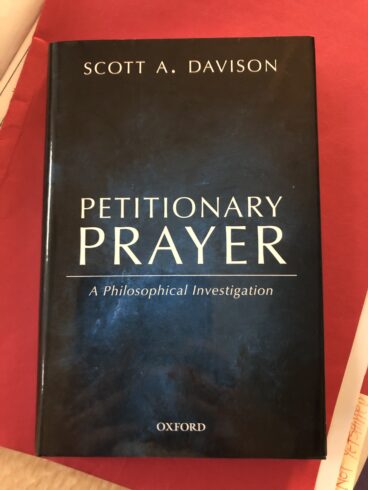 Scott A. Davison became more doubtful later in life. Wondering if the prayers he sent to God when they were answered if it was really God. He “started to wonder if the truth might be more complicated, and this drove [him] deeper into theological and philosophical studies” (2). Thus the seeds for the book, Petitionary Prayer: A Philosophical Investigation, were planted.
Scott A. Davison became more doubtful later in life. Wondering if the prayers he sent to God when they were answered if it was really God. He “started to wonder if the truth might be more complicated, and this drove [him] deeper into theological and philosophical studies” (2). Thus the seeds for the book, Petitionary Prayer: A Philosophical Investigation, were planted.
Davison develops a new account of the conditions required for a petitionary prayer to be answered by employing the notion of contrastive explanation. With attention to recent developments in metaphysics, epistemology, and value theory, Davison survey the literature on this question. While the original title was “On the Pointlessness of Petitionary Prayer,” he did take a step back and realize he couldn’t support this conclusion philosophically.
He still has questions, as do most of us probably do, and this is not the extent of the research on petitionary prayer. Hopefully, this book will lead others to further investigation, to develop new arguments and new positions.
P.S. I’m still holding out on a trip in the TARDIS!
Branches of Government or a Circus?
Our three branches of government:

Yes, they can be a bit of a circus at times, but what do they actually do and how do they work together. Well, look no further than these titles.
(Other books that go above erase this once they are there: Checking Presidential Power, A Seat at the Table)
They look into
- congressional elections
- how women navigate today’s stark partisan divisions
- whether women feel effective in their jobs
- the internal structure of Congress
- policymaking in the separation of powers systems
- what motivates women’s legislative priorities and behavior
- the legislative process
- Congress and the president
- why legislators are or are not engaged in the legislative process
- Congress and the courts
- the choice between decrees and statues

